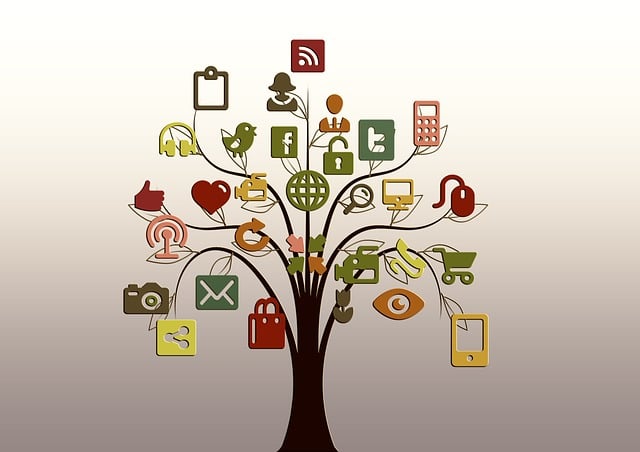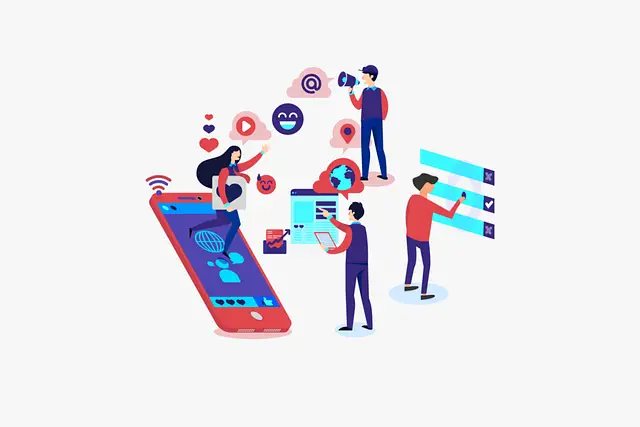The Effect of Emerging Technology on the Media and Entertainment Industry
Introduction
Recent and developing technology has had an impact on how we communicate, work, learn, and operate. As technology advances, the prospects for fast technical developments seem to be unlimited, but so do the ethical concerns.
This paper assesses the advent of Artificial Emotional Intelligence (A.E.I.) and its potential influence on the UK media and entertainment (M&E) business, as well as the ethical challenges and trade-offs that come with the disruption. Based on the study, an opportunity area was discovered, and a prototype was created and tested for the video-on-demand platform Netflix, as seen in the movie above.

Netflix: Disrupting the Media and Entertainment Industry.
The M&E business is divided into many sub-sectors, including but not limited to: television production and distribution, advertising, information publication and events, social media, and many more (Deloitte, 2017a).
The introduction of Netflix has not only profoundly altered the way consumers watch television, but also the way it is produced. In 2013, Netflix created its first original series, House of Cards, and published all episodes of the first season on the same day. Because an episode’s duration is not limited by a regular TV schedule of releasing one episode each week, it may be tailored to the narrative. Furthermore, given the quantity of data Netflix can gather on its customers, they can analyze which episodes are being seen and what kind of material the public wants to see in the future (Wilson, 2016).
Technology Trends Impacting the M&E Industry
The introduction of fast and dependable fifth generation (5G) broadband networks, as well as Artificial Emotional Intelligence, will have the largest influence on the internet video market, as discussed in detail below.
5G Data Network: Intelligently Connecting and Sensing.
The fifth generation (5G) of wireless networks is expected to impact the E&M sector with significant gains in transmission speeds, quality, and dependability. 5G will provide internet rates that are 50 to 100 times faster than present 4G networks, allowing you to download an HD movie in seconds rather than six minutes on a 4G network (Granados, 2017). It is predicted to be accessible in the United States and China by 2020, with the UK following no later than 2025, as shown in figure 1 (Auchard & Nellis, 2018; Woods, 2017).
The Netflix Effect on Society: Ethical Risks of a 5G Rollout
According to DiSalvo (2018), he has been “struck by a profound change in the psychological calculus of entertainment. Netflix has changed […] the dynamics of restraint and gratification that our brains have for decades been trained to tacitly obey.” This defines the phenomena of binge-watching, in which customers watch many episodes of the same series in a short period of time rather than one episode each week as scheduled by a television network (Mikos, 2016).
Some studies view binge-watching as a restorative experience because it is a form of entertainment that can satisfy consumers’ needs (Panda & Pandey, 2017; Rubin, 2009); however, Wheeler (2015) describes binge behavior as an addiction, stating that overindulgence in Netflix can result in issues such as sleep deprivation, isolation, lethargy, and loneliness, which can lead to depression and obesity.
The introduction of a 5G network will promote binge-watching behavior by making it simpler and quicker to access and download Netflix material from anywhere and at any time. This quick accessibility is already driving impatience and rapid pleasure in people, as well as causing social and health difficulties, which will only worsen as roaming networks get faster and more dependable.

The Impact of Artificial Intelligence on Entertainment
Artificial intelligence (A.I.) is already built into the technologies we use on a daily basis. Devices like Amazon’s Alexa and Siri on iPhones are making our lives easier and more convenient. Netflix and other VOD platforms utilize artificial intelligence algorithms to analyze its customers’ watching behavior, which serves as the foundation for investment possibilities and feeds data into their recommendation system. In fact, the recommendation algorithm helps users find more than 80% of the TV series they watch on Netflix (Plummer, 2017). IBM (2016) recently employed artificial intelligence (AI) to create a movie trailer for the film Morgan based on machine learning and big data. The algorithm was able to build the trailer in 24 hours, although humans generally require 10-30 days, suggesting a danger of job displacement in the post-production business. Despite Netflix’s use of complicated algorithms to forecast consumer behavior, the horror program Hemlock Grove failed to connect with its audience, showing limitations in the complexity of computer intelligence.
Despite significant advances in artificial intelligence, one key barrier has slowed broad corporate and consumer adoption: emotional intelligence (Beck and Libert, 2017). Human-machine interaction has advanced significantly, and the interpretation of emotional responses is what may lead to robots interacting more naturally with their users, resulting in full machine intelligence (Johnson, 2017; Mok, 2017).
Advantages of Artificial Emotional Intelligence.
In 1997 (p. 1), Picard invented and defined the term emotional computing as “computing that relates to, arises from, or influences emotions.” Emotions are strong tools for determining what is significant and what is not. “Something that provokes a powerful emotional response is unlikely to be disregarded — it lodges in our memory and feeds into our decision-making” (Clark, 2017, p. 5). Marketing, advertising, and the entertainment industries already use human emotions to forecast what material will elicit a strong emotional response from viewers. Start-ups such as Affectiva, Emotient, and Sension are all working on software that can analyze and discriminate emotions via facial expressions. The unprecedented quantity of data accessible today, along with breakthroughs in natural language processing and emotionally sensitive algorithms, will result in a more engaging and personalized method of consuming media in all of its forms (Hamet & Tremblay, 2017; Forbus and Laird, 2002).
In addition to marketing and advertising, affective computing is being utilized to develop assistive and companion robots for elderly, automobile alertness monitoring systems, immersive gaming, more engaging education, and autism-specific assistance (Picard, 2009). Building empathic digital gadgets, according to Jannsen (2012), “could improve our health and well-being and greatly improve our future’s society.”
Ethical Implications of Artificial Intelligence in the M&E Industry
While many people believe that artificial intelligence is helpful to human civilization, leading to a more frictionless environment, others worry that it will become too intelligent and take over human society. Even industry heavyweights like Stephen Hawking and Elon Musk have cautioned about the dangers that artificial intelligence might represent (Marr, 2018). The potential risks that A.I. and A.E.I. offer to privacy infractions are significant, necessitating the adoption of industry standards from the start. However, this raises the issue of who is in responsibility of enacting and implementing these regulations, sparking widespread industry dispute.
Mike Ryan, a digital futurist and the creator of an ethical artificial intelligence startup, remarked on restrictions in an interview on April 2, 2018. “Architects, accountants, attorneys, and other professions have historically studied ethics and maintained responsible independent groups that enforce and assure ethical behavior. The software business lacks such established models since the industry is too young to have such historical checks and balances.”
Emotional Economy and Privacy Concerns
Mok (2017) warns of the hazards of a rising ’emotion economy’, which consists of a variety of linked gadgets and services that are emotionally sensitive and respond to unspoken demands, eventually transforming society’s interaction with technology. Despite some of the positive applications of A.E.I. in fields such as medicine and education, Joshi (2018) contends that emotions will become yet another data set that advertisers, politicians, and hackers can exploit through the privatization of consciousness and an individual’s most intimate emotions.

Psychographic targeting and emotional manipulation.
Giving firms access to emotional reactions comes with a variety of hazards, especially in a world where companies like Facebook and Google already control vast quantities of sensitive personal data. Breaches in data security have already resulted in the manipulation of an entire society’s culture, as when Cambridge Analytica illegally accessed millions of Facebook profiles and used A.I. to analyze and alter individuals’ political views, potentially influencing the most recent US presidential elections (Halpern, 2018). Halpern (2018) states that “psychographic methods bypass individuals’ cognitive defenses by appealing directly to their emotions, using increasingly segmented and sub-grouped personality type designations and precisely targeted messaging based on those designations.”
Despite these ethically questionable outcomes, Kaliouby, CEO of Affectiva (2017) believes that collecting information about users’ personal states can help influence their moods and wellness by recommending the use of an app that can send out “funny or inspiring” content during users’ low moods and gamify their emotional state by providing happiness and mood advice. While this is simply one conceivable use of A.E.I., the issue is whether employing the technology in this manner would benefit the world and offset the potential societal risks.
Conclusion
This paper looked at 5G and Artificial Emotional Intelligence, two of the most prominent upcoming technologies that are set to impact the M&E business in the future years. While the application of A.E.I. in industries such as education and medicine will benefit society, its use in the media industry is likely to raise concerns about stricter privacy regulations, as it will be used primarily to further individualise advertising content, contributing to a new ’emotion economy’. While Netflix’s embrace of A.E.I. and 5G poses a variety of ethical dangers to society, in order to maintain their position as the leader in online video streaming, they will need to stay current on these technological breakthroughs.






